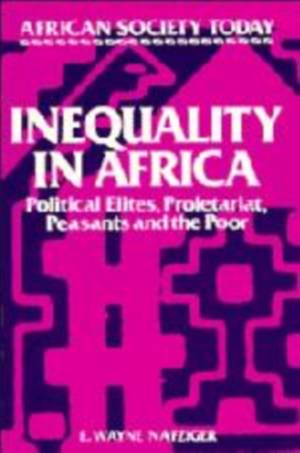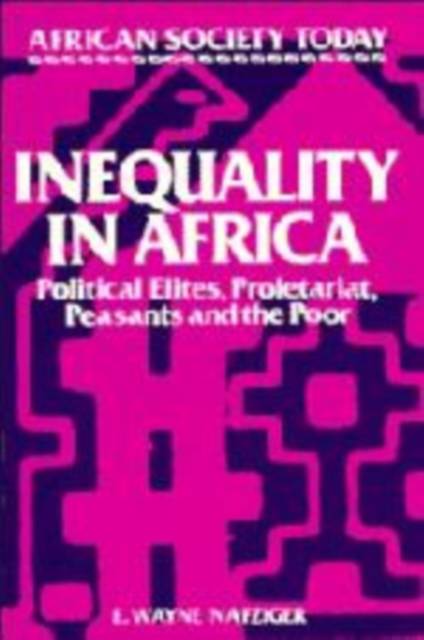
- Afhalen na 1 uur in een winkel met voorraad
- Gratis thuislevering in België vanaf € 30
- Ruim aanbod met 7 miljoen producten
- Afhalen na 1 uur in een winkel met voorraad
- Gratis thuislevering in België vanaf € 30
- Ruim aanbod met 7 miljoen producten
Zoeken
Inequality in Africa
Political Elites, Proletariat, Peasants and the Poor
E Wayne Nafziger, Wayne Nafziger
€ 60,95
+ 121 punten
Omschrijving
This study of inequality in Africa, first published in 1988, not only rejected the orthodox approach of the World Bank and the International Monetary Fund, which neglected income distribution and advocated greater external economic reliance, but also the statist Lagos Plan of Action, which supported comprehensive planning, large capital-intensive state firms, and increased government intervention in peasant prices. Wayne Nafziger's political economy analysis shows how the colonial legacy, the contemporary global economic system, and the ruling elites' policies of co-opting labour, favouring urban areas, distributing benefits communally, and spending on education to maintain inter-generational class exacerbate discrepancies between regions, urban and rural areas, and bourgeoisie and workers, even under 'African socialism'. The author's policy discussion eschews technoeconomic solutions, arguing that reducing inequality requires democratising political participation as well as economic control.
Specificaties
Betrokkenen
- Auteur(s):
- Uitgeverij:
Inhoud
- Aantal bladzijden:
- 220
- Taal:
- Engels
- Reeks:
Eigenschappen
- Productcode (EAN):
- 9780521317030
- Verschijningsdatum:
- 26/08/1988
- Uitvoering:
- Paperback
- Formaat:
- Trade paperback (VS)
- Afmetingen:
- 152 mm x 226 mm
- Gewicht:
- 281 g

Alleen bij Standaard Boekhandel
+ 121 punten op je klantenkaart van Standaard Boekhandel
Beoordelingen
We publiceren alleen reviews die voldoen aan de voorwaarden voor reviews. Bekijk onze voorwaarden voor reviews.











